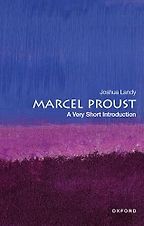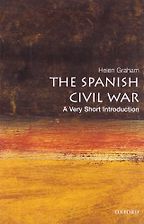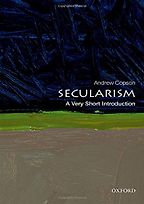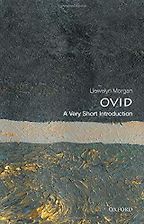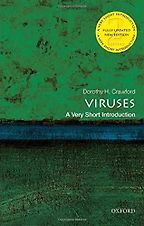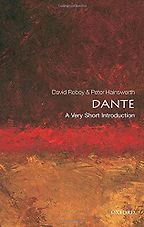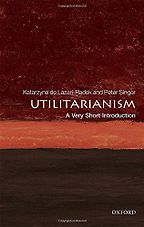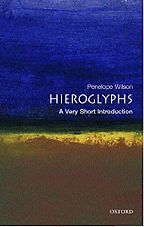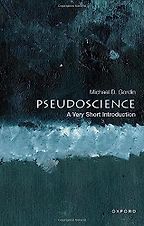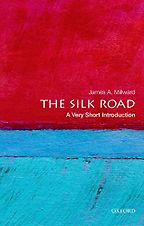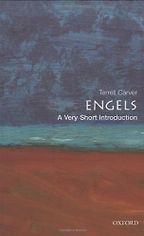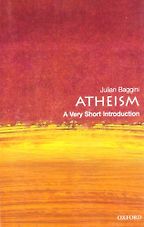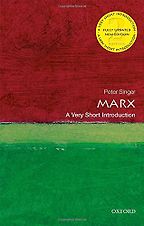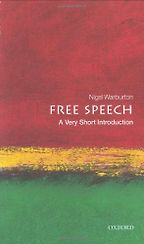A Very Short Introduction Series
Last updated: May 05, 2025
Produced by Oxford University Press, the Very Short Introduction series uses expert authors to concisely, accurately and engagingly introduce a topic. Most are around 120 pages long. Here are some of the books in the series that have been recommended on Five Books or whose authors we've interviewed on the site:
“It’s like spending time with a friend, and that friendship changes your life.” Read more...
Joshua Landy, Literary Scholar
“I think Helen Graham is probably the most profound historian writing about the Spanish Civil War in the English language. This little book, an Oxford University Press paperback, which is a short introduction, is a remarkable work in that in a very short space she manages to deal with everything. Despite spending 40 years researching this subject myself, I found that it just glitters with insights. It gave me angles on things that I hadn’t necessarily thought about before and yet is still a very good book to read if you are an absolute beginner on the subject.” Read more...
The best books on The Spanish Civil War
Paul Preston, Historian
“I would define military strategy as finding the strengths and weaknesses of your opponent and using them to your best advantage in order to get what you want. It requires understanding your opponents—not just what their material capabilities might be, but also their psychology, their habits, what they might be inclined to do or not to do, and what they might want from you. From all that information, you construct an idea of their strengths and weaknesses with respect to your own. You then use your strengths against their weaknesses as best you can in order to achieve whatever it is you want. Maybe you want to give them enough of a drubbing that they’ll leave you alone, maybe you want to deter them from attempting to harm you in the first place, or maybe you want something more than that. There’s any number of possibilities.” Read more...
The best books on Military Strategy
Antulio Echevarria II, Military Historians & Veteran
“The most basic definition is that a pandemic is a very large epidemic which affects a large number of people across a swath of time and space. Generally, pandemics cross national boundaries, and often modern pandemics cross oceanic boundaries. That’s the way I’ve defined it in my book. The book looks at how pandemics unfold over time and how societies deal with them, with chapters focusing on HIV, cholera, malaria, smallpox and tuberculosis. I show how breakthroughs in medicine changed our relationship to these diseases. I draw a distinction between acute pandemics, like cholera, and chronic ones, like tuberculosis. Cholera takes over people’s lives relatively quickly, whereas tuberculosis is a longstanding chronic pandemic; it’s never gone away.” Read more...
Christian W. McMillen, Historian
Alexander the Great: A Very Short Introduction
by Hugh Bowden
Part of the Very Short Introductions series
“Alexander was the son of Philip of Macedon and, while in earlier periods, Macedonia had been on the edges of the Greek world, during Alexander’s childhood Philip had made it into the most significant power in Greece…Macedonia was, effectively, set up as a kingdom in the late sixth century BC, when the Persians under King Darius I invaded northern Greece…The Macedonian monarchy was modelled, to some extent, on Persian practices or the practices of other monarchies that emulated Persia. That suggests that the huge contrast between Greece on one hand and Persia on the other, which is what Greek historians tended to focus on, and which modern scholars also often assume to be the case, wasn’t there quite so much in reality.” Read more...
The best books on Alexander the Great
Hugh Bowden, Historian
Secularism: A Very Short Introduction
by Andrew Copson
Part of the Very Short Introductions series
Andrew Copson’s short book covers a lot of ground. In his role as Chief Executive of Humanists UK, he is practically involved with secularism on a daily basis, and is an eloquent defender of secularist principles, but nevertheless here provides a balanced and generous interpretation that presents arguments on different sides. Read our philosophy editor, Nigel Warburton's, review:
“I chose this book because it’s a wonderful introduction to all the different facets of Hobbes’s life and writings and context. It’s very short. It’s very readable. If you don’t know Hobbes, it’s a great way to get a first taste. The first part is dedicated to biographical details and is particularly of relevance for understanding the intellectual context he’s operating in. The second part deals with the various branches of his philosophy, his science, his ethics, his politics. The third part of the book is also interesting. He gives you an overview of the scholarship on Hobbes—all the different ways that Hobbes has been interpreted.” Read more...
Arash Abizadeh, Philosopher
Ovid: A Very Short Introduction
by Llewelyn Morgan
🏆 A Five Books Book of the Year
Part of the Very Short Introductions series
“This one is a really loving account of Ovid, with a very simple structure. It just takes you through his major works, with the Metamorphoses obviously at the centre. It’s also, to a certain extent, a meditation on exile. Ovid is one of the great figures of exile. It’s very good on that perspective. It’s a wonderful little book. I can’t think of a better introduction to the work of this figure who is, arguably, the single most influential poet of antiquity.” Read more...
The Best History Books of 2020
Paul Lay, Historian
Chinese Literature: A Very Short Introduction
by Sabina Knight
Part of the Very Short Introductions series
Chinese Literature: A Very Short Introduction by Sabina Knight, a Professor of Chinese and World Literatures at Smith College, is a great way of getting an overview of Chinese literary traditions. It opens with Zhuangzi in 4th-3rd century BCE, discussing whether or not one could know if a fish is happy, to the post-Mao era 'scar literature' and an overview of contemporary writing.
Viruses: A Very Short Introduction
by Dorothy H. Crawford
Part of the Very Short Introductions series
“Viruses are just a piece of genetic material inside a protein shell. So they’re obligate parasites. They can’t exist on their own. Whether or not they are alive is a moot point: it’s something that I’ve argued both for and against in my own books, because it’s an interesting question not only scientifically, but also philosophically. You have to start by asking: what do we call ‘alive’? I would come down on the side of no, they are not living. After all, they don’t metabolise, so they can’t generate energy or make proteins; in fact they can’t do anything on their own. That piece of genetic material has to get inside a living cell – then it hijacks all the mechanisms of the living cell to produce its own offspring.” Read more...
Dorothy H. Crawford, Medical Scientist
Dante: A Very Short Introduction
by David Robey & Peter Hainsworth
Part of the Very Short Introductions series
Dante: A Very Short Introduction by David Robey and Peter Hainsworth is a fantastic introduction to the work of the Italian poet, Dante Alighieri (1265-1321). The book is essential reading before embarking on Dante's great work, the Divine Comedy, as a lot depends on understanding the context of the poem and of the man who wrote it.
“Who was Michel Foucault? At the beginning of my Very Short Introduction, I pose this question and give Foucault’s own answer from his The Archaeology of Knowledge: ‘Do not ask who I am and do not ask me to remain the same: leave it to our bureaucrats and our police to see that our papers are in order. At least spare us their morality when we write.’ I think, in fact, that for an intellectual like Foucault, the most important story of his life is the story of the books he wrote. That story begins—after some initial existentialist stutters that didn’t turn into his true voice—with his great History of Madness“ Read more...
Gary Gutting, Philosopher
Utilitarianism: A Very Short Introduction
by Katarzyna de Lazari-Radek & Peter Singer
🏆 A Five Books Book of the Year
Part of the Very Short Introductions series
“This book is quite brilliantly done. It’s a very concise book, but it’s intelligible and precise in the way it describes the varieties of utilitarianism. It’s very readable and it covers a lot of ground. It covers what you would cover in a university undergraduate course on utilitarianism, but you can read and take it in in four or five hours or so. Because Peter Singer is a co-author, it has a certain authority in its description of thinkers and positions. It’s got a bias, obviously, because it’s written by people who are extremely sympathetic to utilitarianism.” Read more...
The Best Philosophy Books of 2017
Nigel Warburton, Philosopher
“He is, of course, a very funny writer. He is brilliantly ironical. But he wasn’t the first writer to use irony to get around awkwardness.” Read more...
Nicholas Cronk, Literary Scholar
Hieroglyphs: A Very Short Introduction
by Penelope Wilson
Part of the Very Short Introductions series
“She packs a lot into the book. She gives an overview of the nature, history and function of Egyptian hieroglyphs. She covers all the basics, everything you need to know about them if you’re starting from scratch. If you were to visit the British Museum and take a close look at the Rosetta Stone, or you were going to take a walk through the Egyptian gallery at the Louvre , it’s a book you might read before visiting, so that you could know a little bit more about what you were looking at before you got there, and be able to make more sense of what you see.” Read more...
The best books on Hieroglyphics
Diane Greco Josefowicz, Historian
“I am surprised myself that something which I did for my PhD 40 years ago still casts a spell on me today, just as it did then. It is the enormity of the challenge – to find out what exactly accounts for the development of the mind…What does it mean that you can have talents even when you have serious disabilities. I have always been fascinated by this contrast. It tells us something about the structure of the mind. I think the mind is not just one hopelessly entangled mass, but can be divided into surprisingly neat compartments, as if we were looking at a house with many rooms…There are other neurological conditions which tell us something about the structure of the mind. They all hold keys to open doors of many rooms that are yet closed. I think autism holds one of the main keys to give us insight into the mind.” Read more...
Uta Frith, Psychologist
“In Oxford University Press’s Very Short Introduction series there’s a new book on Pseudoscience (again, a popular subject subject on Five Books) by Princeton historian of science Michael Gordin.” Read more...
Notable Nonfiction of Early Summer 2023
Sophie Roell, Journalist
“The Shahnameh is an epic poetic rendition of what is generally described as the national myth of Iran. It is in effect a creation myth which looks at mythical and legendary kings down into the historical period of the last two pre-Islamic dynasties…Scholars often say that the identity of a people can be recognised in their collected myths, and these are the collected myths of the Iranians which are a good repository of information and ideas” Read more...
The best books on Iranian History
Ali Ansari, Historian
“Over recent years, television has got a bit more accurate in the procedural sense, because there are so many forensic science courses—people believe they know about managing a crime scene, cordoning things off, all that kind of stuff. But the truth of the matter is that only a tiny number of people have ever been to a crime scene or been in a forensic science lab. Only a tiny number of people have ever actually been in a court, let alone given evidence. People fill these gaps with their imaginations, and this imagination has just gone wild in the last twenty years, and a lot of it is just untrue.” Read more...
The best books on Forensic Science
Jim Fraser, Medical Scientist
“There’s no simple answer as to what forensic psychology is. In a nutshell, it’s research into, and the professional application of, psychology relevant to all aspects of the legal proceedings, but is often broadened to cover the psychology of crime and criminality.” Read more...
The best books on Forensic Psychology
David Canter, Psychologist
“For me, he’s the most important medieval thinker of any religious persuasion…Probably the easiest way to understand why he is so important is that he rethought metaphysics in a way that really centres everything on the idea of existence. He updated metaphysics to make it more suitable for a culture which believed in monotheism and creationism. His idea was: ‘well, what is God really? God is the source of existence. So we need to start from existence in thinking about how metaphysics works.'” Read more...
The best books on Philosophy in the Islamic World
Peter Adamson, Philosopher
“The field of feminist history has uncovered that even when women didn’t have the vote or couldn’t hold office, they still acted to influence political outcomes. Once you begin to look at the ways in which women exercise political power, through their churches, through voluntary groups, through their communities, you begin to see that this sense that women haven’t ever accomplished anything politically is false. To get the vote, women had to be incredibly politically savvy. They needed to learn how to lobby, raise money, get publicity, set up organizations, organize petition drives and mobilize male voters. Throughout American history—during the Revolution, as abolitionists, as Civil War wives and mothers—women were acting politically. The suffrage movement is an excellent example of that.” Read more...
The best books on Women’s Suffrage
Susan Ware, Historian
“While I have spent most of my professional life as an academic, helping and learning and teaching and trying to understand what’s going on in people’s minds, I’m also very practical. This is why I’m a clinical psychologist. I always want to know: ‘So what? What does this tell us? What do we do differently about things?’” Read more...
The best books on Clinical Psychology
Susan Llewelyn, Psychologist
“The Gothic has been a term of cultural, social and political description for centuries. It was well established before the Gothic novel emerged in 1764. So we should really be telling the story of the Gothic from the very beginning: from the fall of the Roman Empire and the Gothic tribes. We need to understand how the Goths were contrasted by Renaissance commentators with classical architects and artists—which is why medieval architecture is today still called Gothic architecture…Many critics take its heyday as occurring with writers such as Walpole, Ann Radcliffe, and Mary Shelley. But neither should we end the story at the beginning of the twentieth century. We should think about horror films, the American Gothic, and popular Gothic culture. Indeed, the Goth subculture—music, fashion and art—has had remarkable longevity.” Read more...
Nick Groom, Literary Scholar
History: A Very Short Introduction
by John Arnold
Part of the Very Short Introductions series
What is history? It's a question that's sometimes asked and one that John Arnold, a professor of history at Cambridge, tries to answer in History: A Very Short Introduction. Normally, books that address this issue (aka 'historiography') are soporific but this is an entertaining book, opening with a murder in medieval France. The chapter on primary sources is also striking, as we hear about Mrs. Burdett of Great Yarmouth who is left destitute after her husband leaves her. Arnold makes the case for doing history—and why it matters—lightly. As he puts it in the preface of the book, "it is intended as a work of enthusiasm."
Free Speech: A Very Short Introduction
by Nigel Warburton
Part of the Very Short Introductions series
